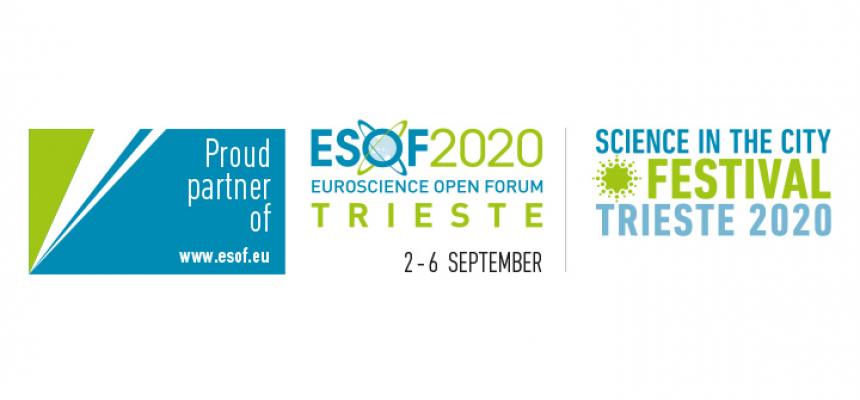In the contest of the EuroScience Open Forum (ESOF) Trieste 2020, Friday 4 September from 6 to 7.30 p.m. at the Trieste Convention Center Auditorium Room 28A, Porto Vecchio, Trieste, there will be the lecture "Scientific diplomacy for freedom: Inter-cultural dialogue for science" by the University of Trieste, in collaboration with Academia Europaea, The World Academy of Sciences - TWAS, National Institute of Oceanography and Applied Geophysics - OGS.
This joint proposal exhibits synergies between members of the Department of Humanities of the University of Trieste (in collaboration with the Academia Europaea and the National Institute of Oceanography and Applied Geophysics, in collaboration with The World Academy of Sciences.
It is designed as an interactive, multidisciplinary round table with two interrelated parts (with an East/West and North/South topicality), each of them last 45' (5' introduction, 20-30' for one or two rounds of moderator's questions with speakers' answers, and 10 for questions from the floor).
The basis of the proposal is the belief and understanding that in the post Coivid-19 world, science has taken center stage in world diplomacy to address a global challenge that disregards national borders, and bears controversially upon individual, academic and social freedoms: while some times building bridges, at others deepening gaps between democracies and other forms of governments.
The pandemic has developed open access to scientific knowledge and know-how, data sharing and evidence-based policy making: and yet a pervasive issue is whether Covid-19 is the latest spectre of the Cold War to surface in tensions between West and Middle East.
The policy perspective of Part One uses history as a prism with foci on science and society:
1. looking back to the historical role of science diplomacy during the Cold War's West-East divide, we shall examine the variety of actors involved, beyond scientists and decision - or policy makers and explore a differentiated multi-valent social approach;
2. regarding current transnational policy of the pan-European regional networking of the Academia Europaea and the ERC, especially regarding Central and East European Countries, we seek to enhance prospects of visibility and effective participation for scholars of marginalized countries and to strengthen their inclusion in internationally responsible scientific communities.
The policy perspective of Part Two focuses on the role of science and scientific research diplomacy in resolving conflicts, creating conditions for dialogue and steering the world toward more cooperation.
Speakers:
Elisabetta Vezzosi, Full Professor of History and Institutions of the Americas, Department of Humanities, University of Trieste
Eva Kondorosi, Biological Research Center, Hungarian Academy of Science, Trustee of the Academia Europaea (AE)
Mohamed H. A. Hassan, President of The World Academy of Sciences (TWAS),
Lassina Zerbo, Executive Secretary Comprehensive Nuclear-Test-Ban Treaty Organization (CTBTO)
Moderators
Cinzia Ferrini, Department of Humanities, University of Trieste, Member of the Academia Europaea
Mounir Ghribi, Director of International Cooperation, Comunication, Skills Development and Research Promotion (ICAP), National Institute of Oceanography and Applied Geophysics (OGS)




